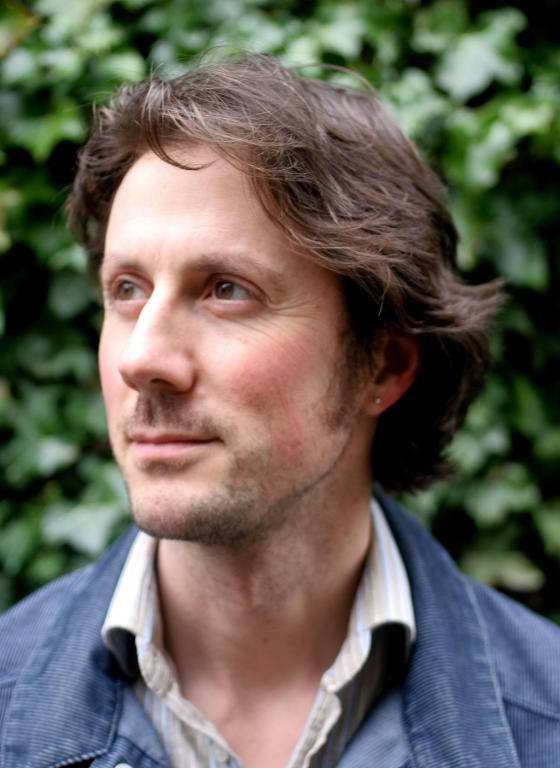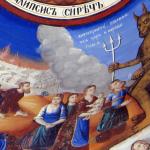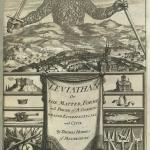Yesterday I posted about a critique of contemporary culture by Paul Kingsnorth. In trying to learn more about him, I came across his website, which includes “an essay-length account of my journey from atheism to Orthodox Christianity, via Buddhism, witchcraft and other strange twists.”
Kingsnorth is an award-winning British novelist, the author of the Buckmaster Trilogy, three experimental novels that range from 1066 to the 31st century. He has also published non-fiction books on the environment, globalism, and culture.
Last year he was baptized, following his conversion to Christianity. In his essay The Cross and the Machine, he tells how that happened.
He describes his childhood in a secularist home, where he learned a little about Christianity in school but felt that “obviously” it couldn’t be true. He liked to visit church buildings, where he and a friend would sometimes write blasphemous statements in the visitors’ book, and he became acquainted with two kinds of Anglican vicars, the fusty old moralist and–even worse–the trendy youth pastor.
He was a teenaged atheist, but he felt something transcendent in nature. He became a radical environmentalist. Convinced that human beings need limits, as all religions taught, he decided to give them a try. It never occurred to him to consider Christianity, which “obviously” isn’t true, on his 40th birthday he went on a meditation retreat in the mountains and turned to Zen Buddhism. This was helpful to him, but he came to realize that he craved worship. So he joined a Wicca coven, which is, he reasoned, a pagan nature religion.
Then he had a dream about Jesus. He started meeting Christians, and friends he didn’t know were Christians started talking about their faith. “It kept happening, for months. Christ to the left of me, Christ to the right. It was unnerving. I turned away again and again, but every time I looked back, he was still there. I began to feel I was being . . . hunted?”
As he was headed to a witchcraft ritual, he suddenly felt sick and dizzy. “I had an overpowering feeling that I should not go into the temple,” he writes. “I felt I was being physically prevented from doing it. Someone had staged an intervention.” Then at a concert at his son’s music school, “I was overcome with a huge and inexplicable love, a great wave of empathy, for everyone and everything. It kept coming and coming until I had to stagger out of the room and sit down in the corridor outside. Everything was unchanged, and everything was new, and I knew what had happened and who had done it, and I knew that it was too late. I had just become a Christian.”
None of this is rationally explicable, and there is no point in arguing with me about it. There is no point in my arguing with myself about it: I gave up after a while. This is not to say that my faith is irrational. In fact, the more I learned, the more Christianity’s story about the world and human nature chimed better with my experience than did the increasingly shaky claims of secular materialism. In the end, though, I didn’t become a Christian because I could argue myself into it. I became a Christian because I knew, suddenly, that it was true. The Angelus that was chiming in the abyss is silent now, for the abyss is gone. Someone else inhabits me.
He came to realize that, in the words of the Irish writer John Moriarty, “The story of Christianity is the story of humanity’s rebellion against God.” And that “Out in the world, the rebellion against God has become a rebellion against everything: roots, culture, community, families, biology itself.” But, he concluded, “The Cross holds the key to everything. The sacrifice is all the teaching.”
He knew he needed a church and found one in the Romanian Orthodox Church. Here, he says, “I found a Christianity that had retained its ancient heart—a faith with living saints and a central ritual of deep and inexplicable power. I found a faith that, unlike the one I had seen as a boy, was not a dusty moral template but a mystical path, an ancient and rooted thing, pointing to a world in which the divine is not absent but everywhere present.”
My description does not do justice to Kingsnorth’s account of his spiritual pilgrimage. Please, read it yourself.
Those who wish to evangelize today’s secularists, especially those who are “spiritual but not religious,” would do well to study this testimony closely. Notice what in Christianity resonates with him and his utter lack of interest in watered-down, liberalized version designed to reach someone like him. But especially notice that God Himself was hunting him down. We often assume that winning converts is all on us, as if God isn’t active in creating faith. Yes, Kingsnorth came to Christianity largely by experiences, but, as in the Book of Acts, these led him to the Word of God and to the Sacraments, where he found the substance and the reality of faith.
I wonder if he or someone like him had stumbled across a Lutheran congregation, would he find that “ancient and rooted” quality that he found in Romanian Orthodoxy, that “central ritual of deep and inexplicable power,” which must refer to Holy Communion? Lutheranism teaches that Christianity is no “dusty moral template” and that “the divine is not absent but everywhere present.” Are we conveying that to the “spiritual but not religious,” or are those facets of our heritage what we are covering over in a vain attempt to attract them?
I haven’t read Kingsnorth’s novels yet, but I plan to, though they may reflect the earlier phases of his spiritual journey. I think I’ll start with the last one, Alexandria, published the year before his baptism. I’ll report on them if I have something to say. Many of his essays are at his website, as well as links to his books, poetry, and Substack subscription.
He’s someone to watch, a tuned in 21st century artist reached by Christ.
Photo: Paul Kingsnorth by Navjoat Kingsnorth, CC BY-SA 3.0 <https://creativecommons.org/licenses/by-sa/3.0>, via Wikimedia Commons














